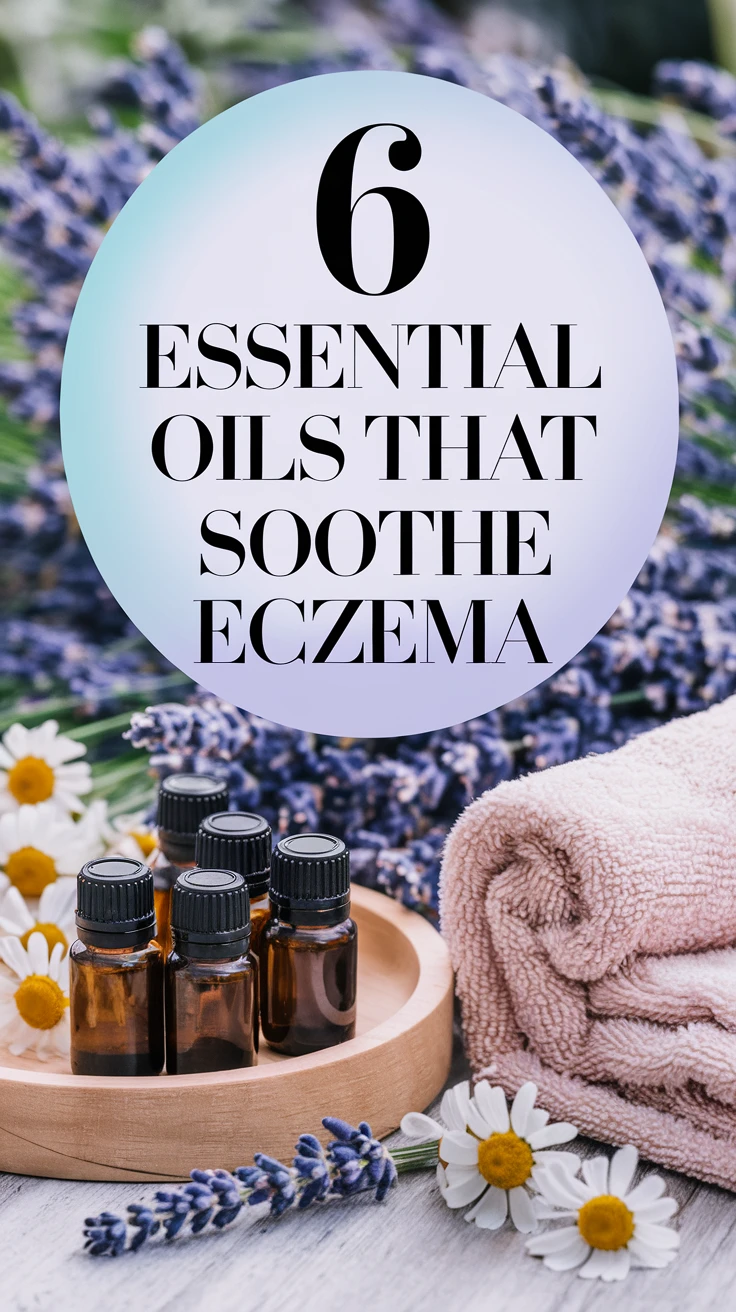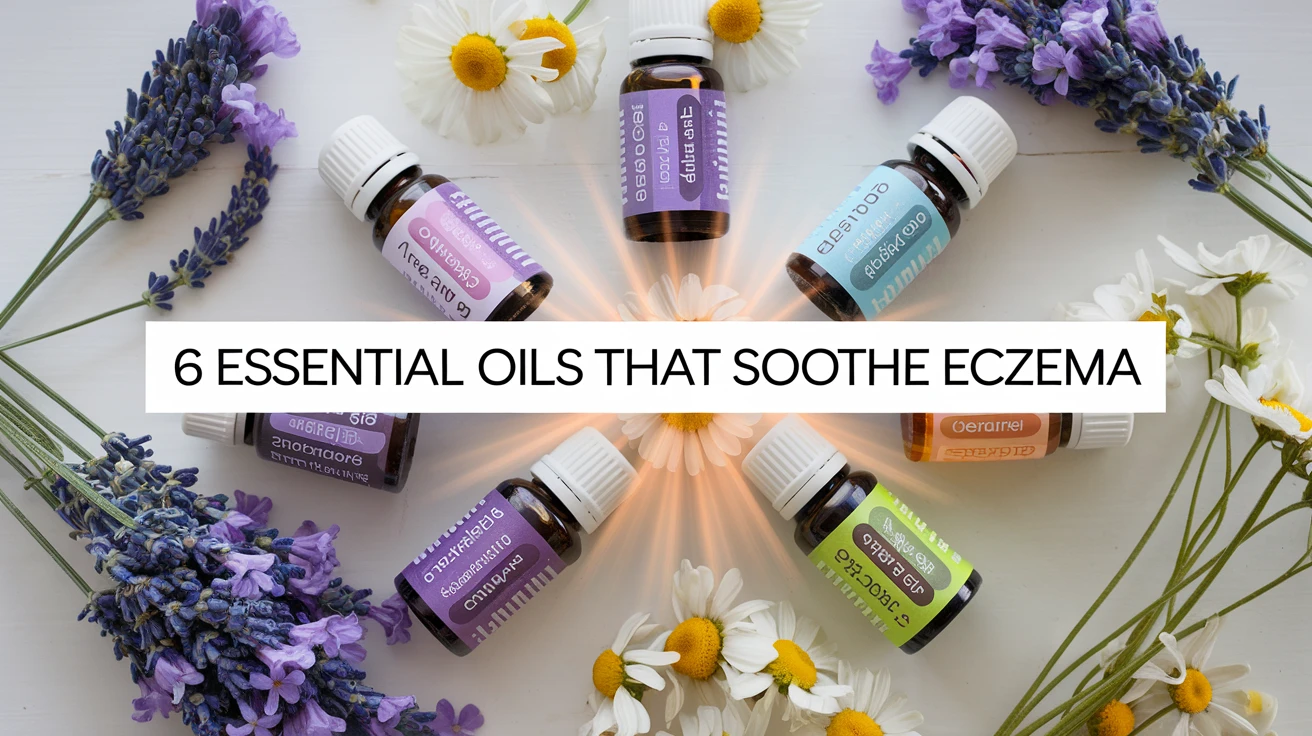
Living with eczema can feel like an endless battle against dry, itchy, and inflamed skin. As someone who has personally struggled with this challenging condition, I understand the frustration of trying countless over-the-counter treatments with limited success. That’s what led me to explore the healing potential of essential oils, and I’m excited to share what I’ve learned about these natural remedies that can provide genuine relief for eczema symptoms.
Essential oils have been used for centuries in traditional medicine, and modern research is beginning to validate their therapeutic properties. When properly used, these concentrated plant extracts can help soothe inflammation, reduce itching, and support the skin’s natural healing process. In this comprehensive guide, we’ll explore six powerful essential oils that have shown promising results in managing eczema symptoms.
Understanding Eczema and Natural Solutions
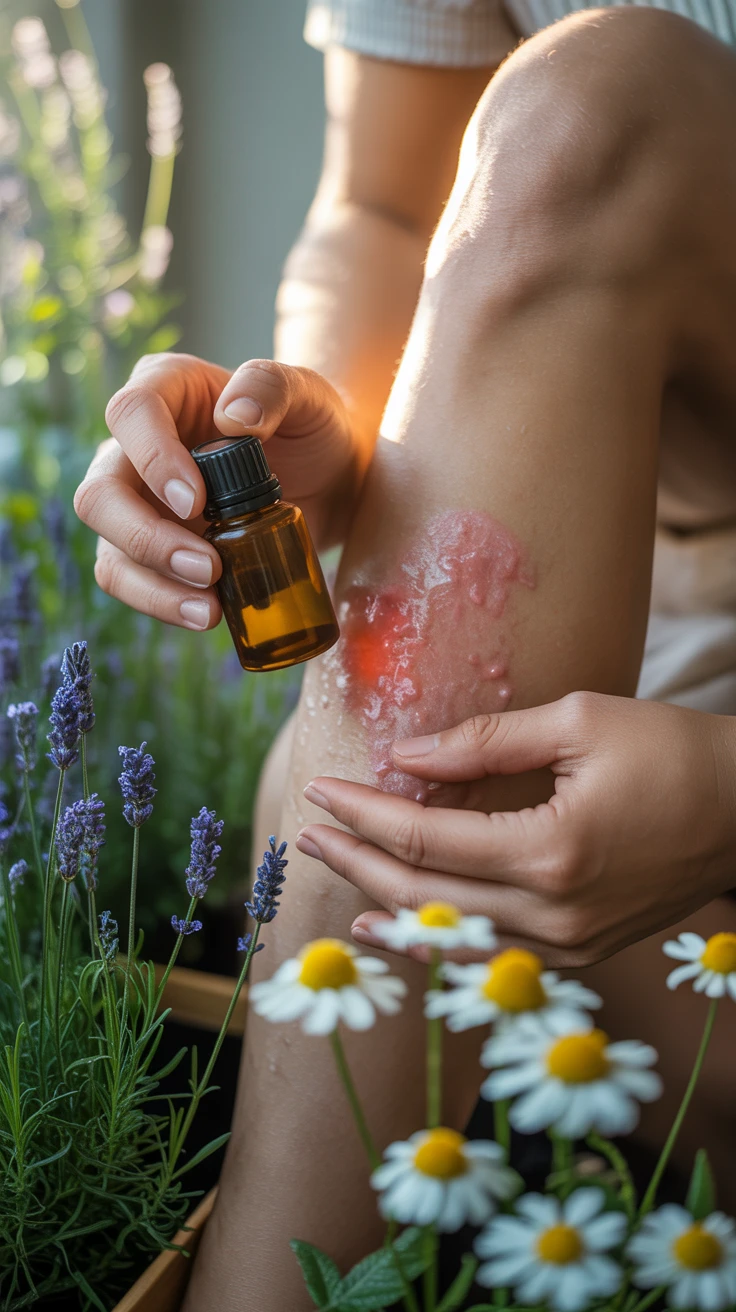
Before diving into specific essential oils, it’s crucial to understand what we’re dealing with. Eczema, also known as atopic dermatitis, is a chronic inflammatory skin condition that affects millions of people worldwide. It manifests as:
- Red, inflamed patches of skin
- Intense itching, especially at night
- Dry, scaly, or thickened skin
- Small, fluid-filled blisters
- Cracking and bleeding in severe cases
While conventional treatments like corticosteroids can be effective, many people seek natural alternatives to avoid potential side effects or complement their existing treatment plan. Essential oils offer a promising natural approach due to their:
| Property | Benefit for Eczema |
|---|---|
| Anti-inflammatory effects | Reduces redness and swelling |
| Antimicrobial properties | Prevents secondary infections |
| Moisturizing capabilities | Helps maintain skin barrier |
| Antioxidant content | Supports skin healing |
Lavender and Chamomile: The Calming Duo
1. Lavender Essential Oil
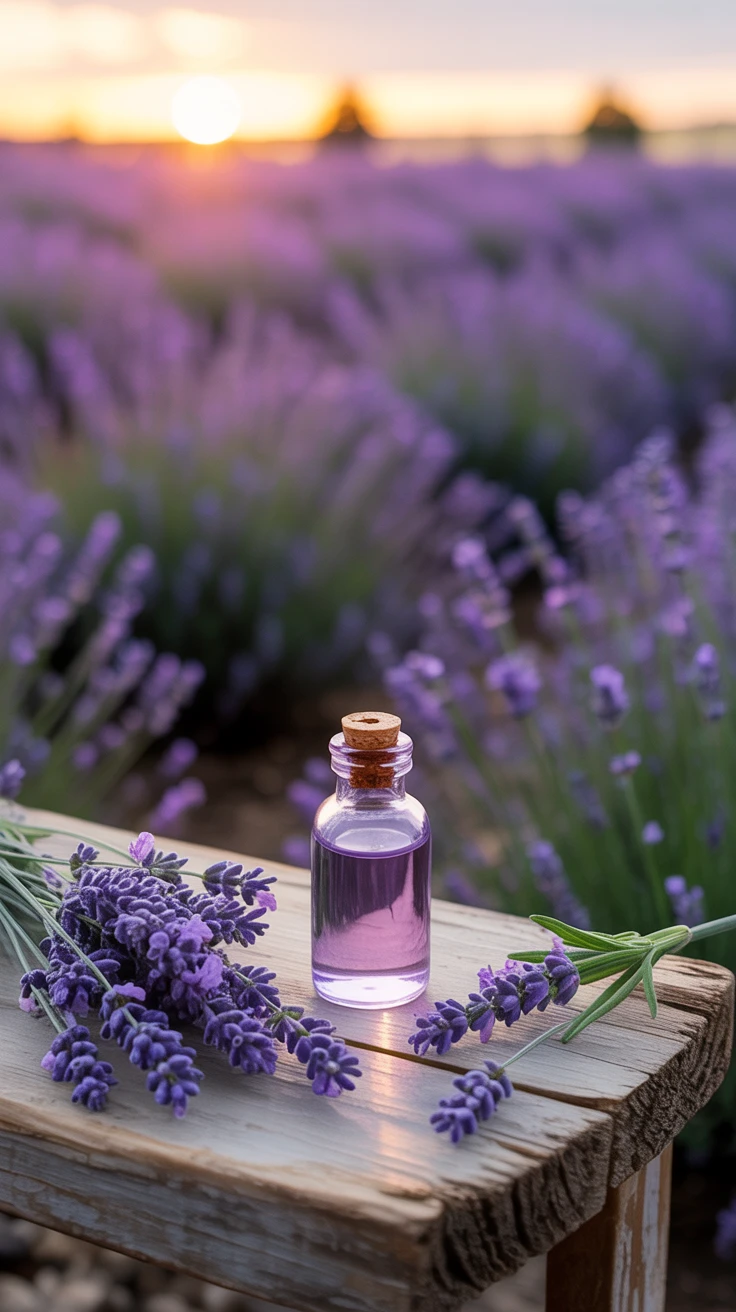
My journey with essential oils began with lavender, and it remains my go-to solution for nighttime eczema flare-ups. This versatile oil offers multiple benefits:
- Powerful anti-inflammatory properties
- Natural antihistamine effects
- Promotes skin healing
- Reduces anxiety and stress (which can trigger eczema)
2. Chamomile Essential Oil
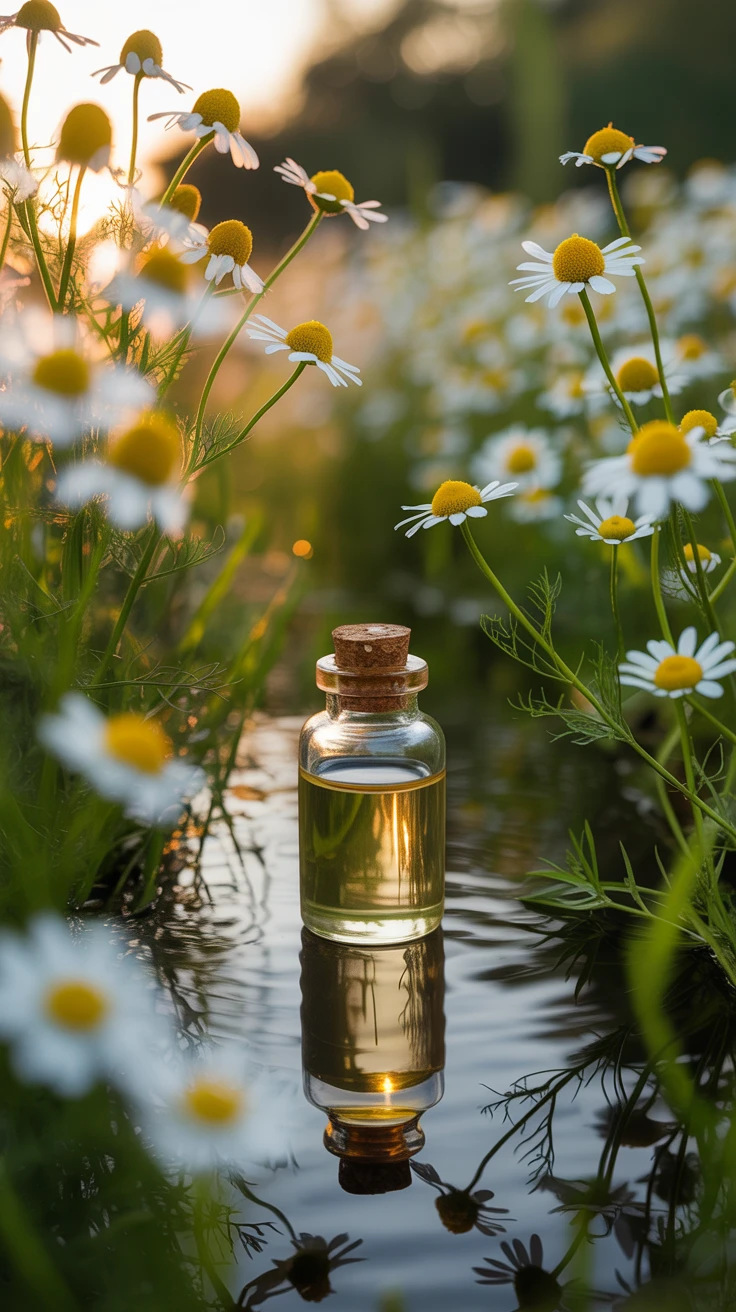
Chamomile oil pairs beautifully with lavender and is particularly gentle, making it suitable for sensitive skin. Its benefits include:
| Property | Effect on Eczema |
|---|---|
| Azulene content | Reduces inflammation |
| Antioxidant properties | Protects skin cells |
| Soothing compounds | Calms irritated skin |
| Antimicrobial action | Prevents infection |
Tea Tree and Geranium: Nature’s Healers
3. Tea Tree Essential Oil
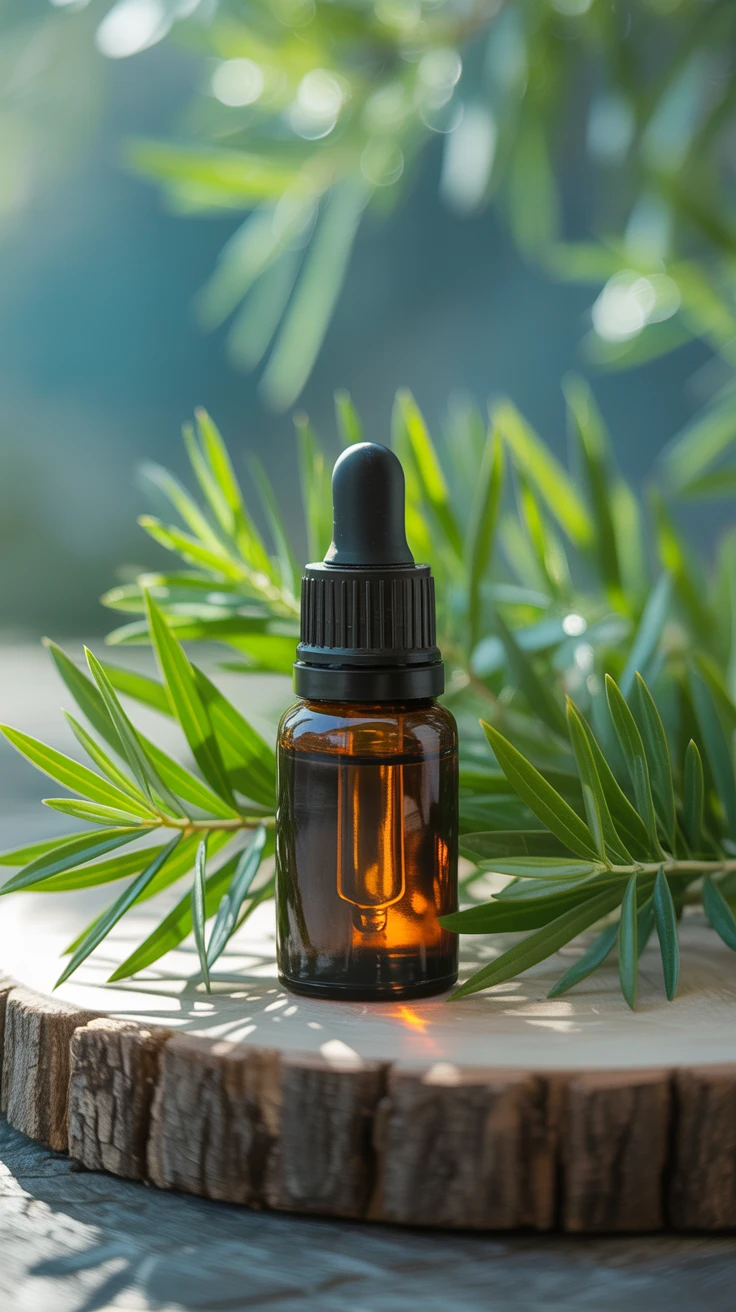
During a particularly stubborn eczema outbreak, I discovered the remarkable properties of tea tree oil. This powerful antimicrobial agent:
- Fights bacterial and fungal infections
- Reduces inflammation
- Helps prevent secondary infections
- Promotes skin healing
4. Geranium Essential Oil
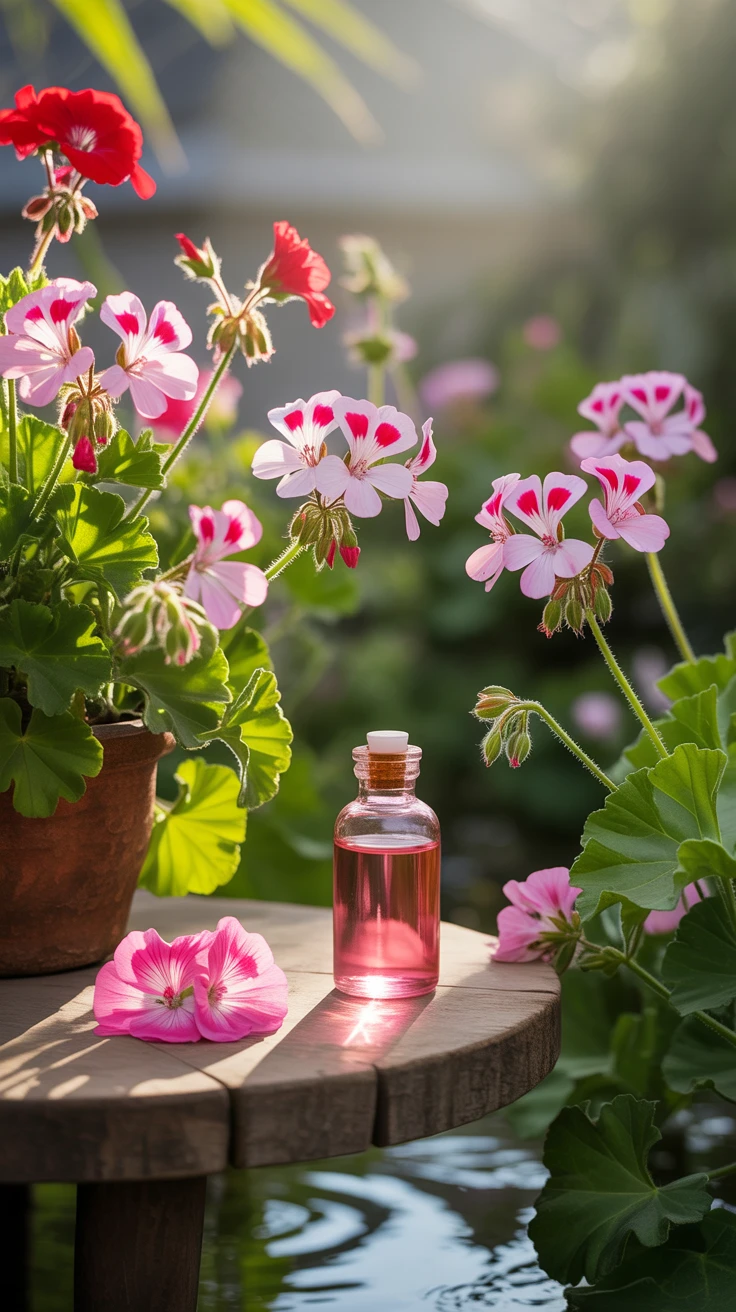
Geranium oil excels at balancing skin conditions and:
| Benefit | Impact on Skin |
|---|---|
| Oil regulation | Balances dry/oily patches |
| Cell regeneration | Promotes healing |
| Anti-inflammatory | Reduces redness |
| Circulation boost | Enhances skin repair |
Frankincense and Helichrysum: Ancient Remedies
5. Frankincense Essential Oil
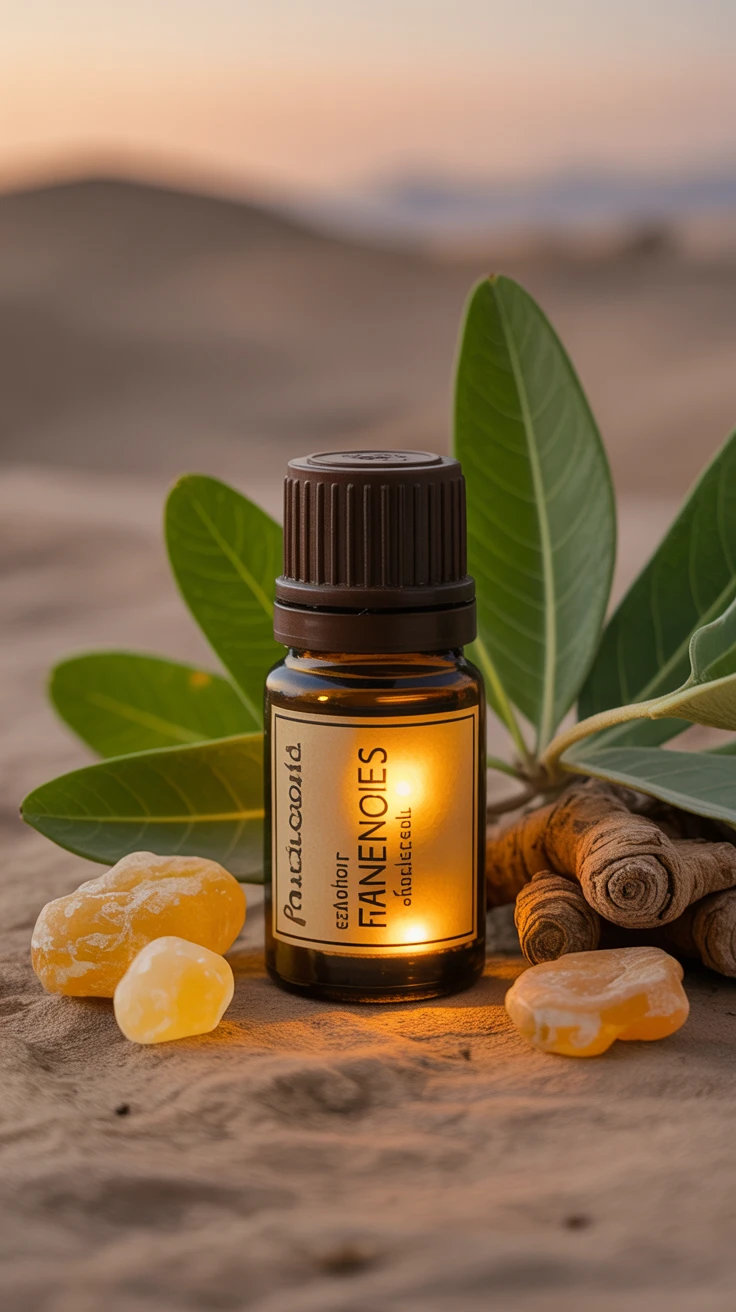
This ancient oil has been used for centuries to treat skin conditions. Its benefits include:
- Reduces scarring
- Promotes cell regeneration
- Strengthens skin barrier
- Calms inflammation
6. Helichrysum Essential Oil
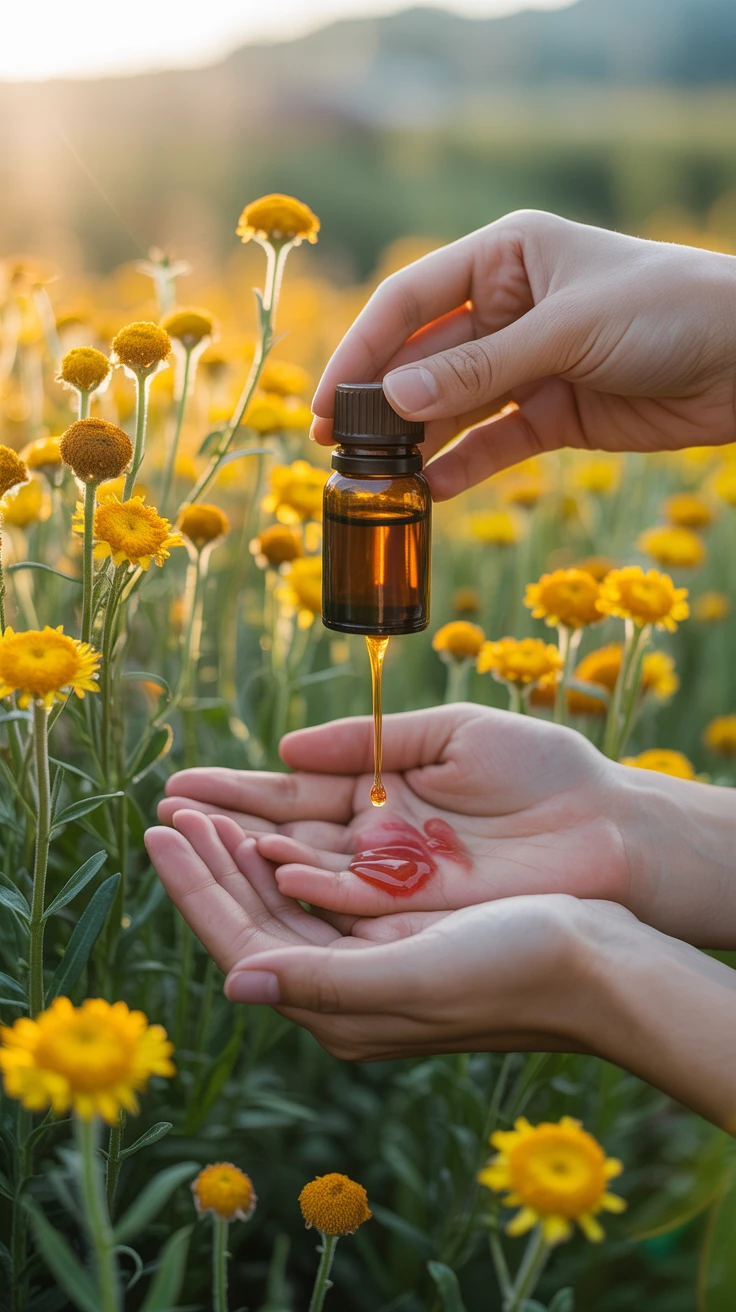
Though less common, helichrysum is incredibly effective for skin healing:
| Component | Skin Benefit |
|---|---|
| Neryl acetate | Anti-inflammatory |
| Italidiones | Tissue regeneration |
| Curcumenes | Antioxidant protection |
| Monoterpenes | Pain relief |
Safe Application Methods for Essential Oils
Through trial and error, I’ve learned that proper application is crucial for effectiveness and safety. Here’s what you need to know:
Dilution Guidelines
- Always dilute in carrier oil (1-2% dilution)
- For children: use 0.5-1% dilution
- Never apply undiluted oils directly to skin
- Start with lower concentrations
Recommended Carrier Oils
| Carrier Oil | Best For |
|---|---|
| Coconut Oil | Dry, irritated skin |
| Jojoba Oil | Sensitive skin |
| Sweet Almond Oil | General use |
| Evening Primrose Oil | Severe inflammation |
Conclusion
Essential oils can be powerful allies in managing eczema symptoms when used correctly and consistently. Remember to always perform a patch test before full application and consult with a healthcare provider, especially if you’re using other treatments. With proper care and attention to safety guidelines, these natural remedies can provide significant relief from eczema symptoms and improve your quality of life.
Key Takeaways
- Always dilute essential oils properly before use
- Combine different oils for enhanced benefits
- Maintain consistency in application for best results
- Watch for any adverse reactions and discontinue use if irritation occurs
- Consider incorporating essential oils as part of a comprehensive eczema management plan
Frequently Asked Questions
Can I use essential oils if I have severe eczema?
While essential oils can help with eczema symptoms, always consult your healthcare provider first if you have severe eczema. Start with very diluted applications and perform patch tests.
How often should I apply essential oils for eczema?
Start with once daily application and increase to 2-3 times daily if well tolerated. Monitor your skin’s response and adjust accordingly.
Can I mix different essential oils together?
Yes, you can create blends of compatible essential oils. Start with 2-3 oils and ensure the total dilution ratio remains appropriate.
How long does it take to see results?
Results vary, but many people notice improvement within 1-2 weeks of consistent use. Some may experience immediate relief from itching and inflammation.
Are essential oils safe for children with eczema?
Use extra caution with children. Always use lower dilutions (0.5-1%) and consult a pediatrician first. Some oils may not be suitable for young children.
Can essential oils cure eczema?
Essential oils can help manage symptoms but won’t cure eczema. They work best as part of a comprehensive treatment approach.
What should I do if I experience irritation?
Discontinue use immediately and wash the area with mild soap and water. If irritation persists, seek medical attention.
Can I use essential oils during pregnancy?
Some essential oils are not safe during pregnancy. Consult your healthcare provider before using any essential oils while pregnant.
How should I store my essential oils?
Store in dark glass bottles away from direct sunlight and heat. Keep them in a cool, dry place with caps tightly sealed.
Can I apply essential oils to broken skin?
Avoid applying essential oils to broken or severely damaged skin. Wait until the skin has begun to heal before starting treatment.
